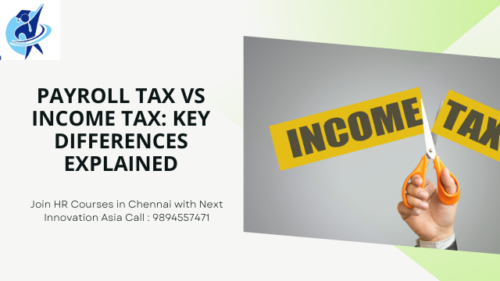Understanding the differences between payroll tax and income tax is crucial for both employees and employers. These taxes are integral to an employee’s salary and contribute to various government programs. Here’s a breakdown of each type and how they differ:
Payroll Tax
- Definition: Payroll taxes are taxes imposed on employers and employees, calculated as a percentage of the wages paid to employees.
- Purpose: These taxes primarily fund Social Security and Medicare programs, providing benefits for retirees, the disabled, and medical coverage for the elderly.
- Components:
- Social Security Tax: A fixed percentage of an employee’s earnings, capped annually.
- Medicare Tax: A percentage of an employee’s earnings, with no earnings cap. High earners may pay an additional Medicare tax.
- Employer and Employee Contributions: Both employers and employees share the responsibility for paying payroll taxes. Employers withhold the employee portion from paychecks and contribute an equal amount.
Income Tax
- Definition: Income tax is a tax levied by the government on an individual’s or entity’s earnings, including wages, salaries, and other income sources.
- Purpose: Income taxes fund a wide range of government activities and services, including infrastructure, education, defense, and public welfare programs.
- Components:
- Federal Income Tax: A progressive tax, meaning the rate increases as income increases. It is based on tax brackets and personal exemptions.
- State and Local Income Taxes: Vary by jurisdiction, with some states and localities imposing additional income taxes on residents.
- Employer’s Role: Employers withhold federal, state, and local income taxes from employee paychecks based on withholding allowances and tax rates. Unlike payroll taxes, there is no direct employer contribution to income tax.
Key Differences
- Scope: Payroll taxes are specific to funding social insurance programs, while income taxes support a broader range of government functions.
- Contribution Structure: Payroll taxes are shared between employers and employees, whereas income taxes are the sole responsibility of the individual.
- Calculation: Payroll taxes are typically a flat percentage of wages, while income taxes are progressive and vary based on total income and deductions.
Understanding these differences helps employees and employers navigate their financial responsibilities and ensures compliance with tax regulations. Properly managing these taxes is crucial for personal financial planning and business operations.
“Boost your HR career with Next Innovation Asia, Chennai’s top HR Training Institute. Certified skills, job support—join today!”

